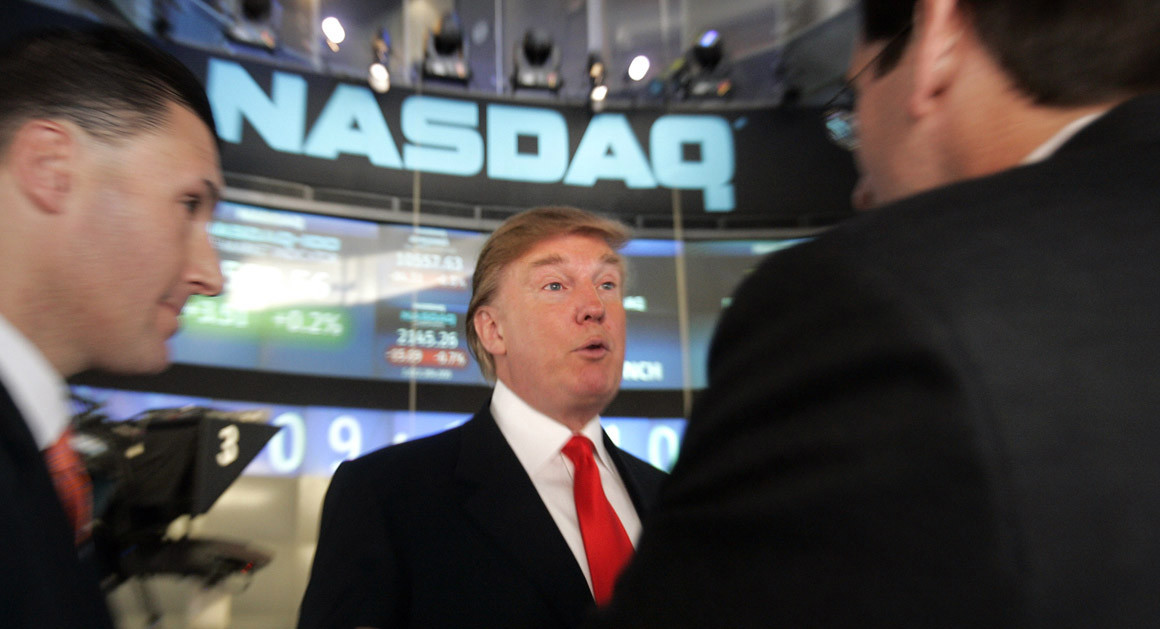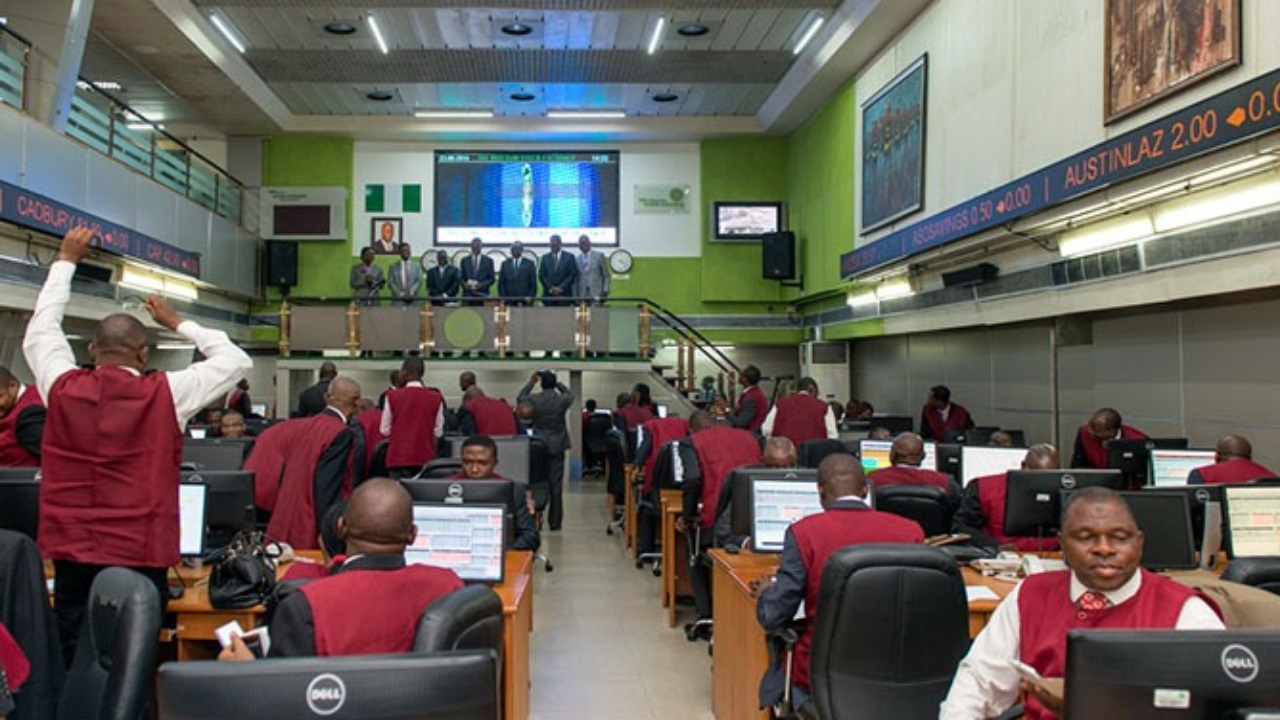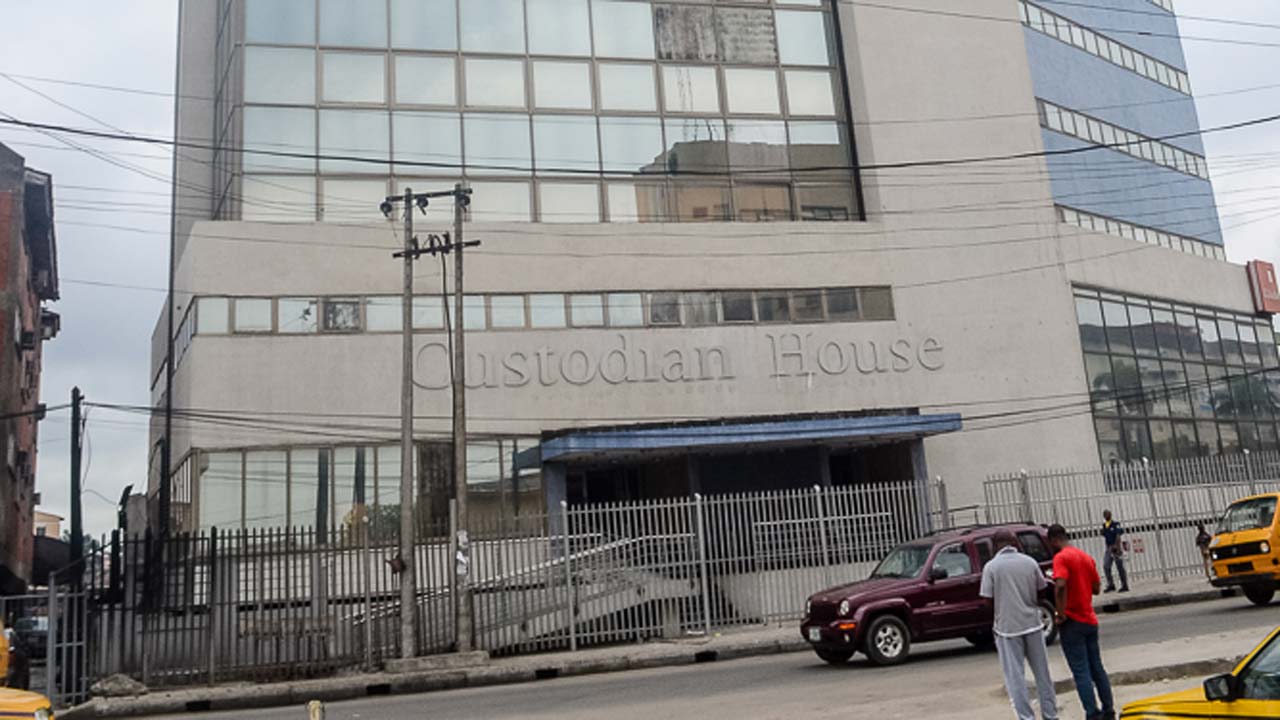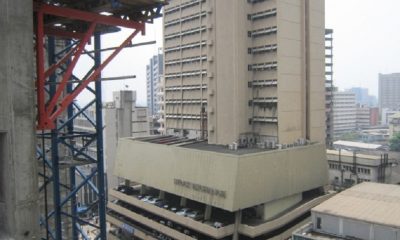Economy
Wall Street Opens Flat as Mid-Term Elections, Fed Meeting Draw Nearer

By Investors Hub
The major U.S. index futures are pointing to a roughly flat open on Monday, with stocks likely to show a lack of direction following the strong upward move seen last week.
Traders may be reluctant to make significant moves ahead of the highly anticipated midterm elections on U.S., which will decide control of both the House and Senate.
Democrats are seen as having a much better chance to claim a majority in the House than in the Senate, but controlling the lower chamber would still allow Democrats to hinder President Donald Trump?s agenda.
The Federal Reserve?s looming monetary policy announcement may also keep some traders on the sidelines, with the Fed due to announce is latest decision on Thursday.
While the Fed is widely expected to lead interest rates unchanged, traders will keep a close eye on the accompanying statement for clues about an expected rate hike in December.
After moving notably higher for a few sessions, stocks gave back some ground during the trading day on Friday. The major averages initially moved to the upside but pulled back into negative territory as the session progressed.
The major averages ended the day in the red but well off their lows of the session. The Dow fell 109.91 points or 0.4 percent to 25,270.83, the Nasdaq slumped 77.06 points or 1 percent to 7,356.99 and the S&P 500 slid 17.31 points or 0.6 percent to 2,723.06.
Despite the pullback on the day, the major averages moved significantly higher for the week. The Nasdaq surged up by 2.6 percent, while the Dow and the S&P 500 both jumped by 2.4 percent.
The downturn on Wall Street was led by Apple (AAPL), with the tech giant tumbling by 6.6 percent to a nearly three-month closing low.
The steep drop by Apple came after the company reported fiscal fourth quarter earnings and revenues that exceeded estimates but weaker than expected iPhone shipments.
Apple also forecast fiscal first quarter revenues of $89 to $93 billion, with the midpoint below the consensus estimate of $93 billion.
The pullback by the major averages also came as traders digested a closely watched Labor Department report showing stronger than expected job growth in the month of October.
The Labor Department said non-farm payroll employment surged up by 250,000 jobs in October after rising by a downwardly revised 118,000 jobs in September. Economists had expected an increase of about 190,000 jobs.
The report also said the unemployment rate in October was unchanged from the previous month at 3.7 percent, its lowest level since hitting 3.5 percent in December of 1969.
Average hourly employee earnings rose by $0.05 to $27.30 in October, reflecting a 3.1 percent increase compared to the same month a year ago.
The annual rate of hourly earnings growth accelerated from 2.8 percent in September, reaching the fastest pace since April of 2009.
The upbeat jobs data paints of positive picture for the U.S. economy but also led to renewed concerns about the outlook for interest rates.
“The U.S. jobs market remains incredibly strong and with wages starting to accelerate, domestic price pressures will increase,” said ING Chief International Economist James Knightley.
He added, “This will keep the Federal Reserve on its path of ‘gradual’ interest rate hikes with next week’s FOMC meeting set to signal a December move.”
Traders also kept an eye on conflicting reports about the likelihood of a trade deal between the U.S. and China ahead of meeting between President Donald Trump and Chinese President Xi Jinping later this month.
Natural gas stocks moved sharply lower over the course of the trading session, dragging the NYSE Arca Natural Gas Index down by 2.1 percent.
Within the natural gas sector, Newfield Exploration (NFX) pulled back sharply after jumping on Thursday after agreeing to be acquired by Encana (ECA) in an all-stock transaction valued at approximately $5.5 billion.
Significant weakness was also visible among semiconductor stocks, as reflected by the 1.5 percent slump by the Philadelphia Semiconductor Index. The index gave back ground after moving notably higher over the past few sessions.
Oil stocks also moved notably lower amid a continued decrease by the price of crude oil. Pharmaceutical and commercial real estate stocks also moved to the downside on the day, while telecom and steel stocks saw considerable strength.
Economy
NCSP, NACCIMA Move to Unlock SME-led Industrial Growth

By Adedapo Adesanya
The Nigeria–China Strategic Partnership (NCSP) has reaffirmed its commitment to consolidate engagements with the Organised Private Sector while strengthening strategic collaboration to accelerate Nigeria’s industrial expansion, following a high-level meeting with the leadership of the Nigerian Association of Chambers of Commerce, Industry, Mines and Agriculture (NACCIMA).
The dialogue focused on aligning institutional efforts to deepen Nigeria–China economic cooperation and position Small and Medium Enterprises (SMEs) as primary beneficiaries of trade, manufacturing, and investment initiatives.
The Director-General of NCSP, Mr Joseph Tegbe, stated that the Partnership was established as a structured coordination platform to drive Nigeria’s strategic economic engagement with China in a disciplined and result-oriented manner.
He outlined its core mandates, including oversight of FOCAC-related initiatives, advancement of priority economic initiatives, and the facilitation of catalytic industrial projects across priority sectors.
Mr Tegbe emphasised that the next phase of engagement will prioritize harmonization of ongoing initiatives, stronger inter-agency coordination, and clearer execution frameworks to ensure Nigerian businesses, particularly SMEs, benefit more directly and sustainably from bilateral trade and investment initiatives.
According to a statement, NSCP said the meeting reviewed existing collaborations and investment pipelines, with both parties agreeing on the need to streamline coordination across federal and subnational levels to improve policy coherence, enhance implementation efficiency and eliminate fragmentation to take advantage of scale.
Mr Tegbe further highlighted the strategic importance of leveraging landmark trade instruments like China’s Zero-Tariff Agreement with African countries as a pathway to scale-up domestic manufacturing, deepen value addition, and strengthen Nigeria’s export competitiveness.
On his part, the President of NACCIMA and Chairman of the Organised Private Sector of Nigeria (OPSN), Mr Jani Ibrahim, commended NCSP’s structured engagement model and its deliberate focus on SMEs as drivers of inclusive industrial growth.
He reaffirmed the readiness of the organised private sector to collaborate closely with NCSP in mobilising enterprises, providing structured policy feedback, and ensuring measurable enterprise-level outcomes from Nigeria–China economic engagements.
Both sides identified practical pathways to integrate SMEs into manufacturing value chains linked to Chinese partnerships; expand agro-processing and value-added production; strengthen technical and vocational education collaborations to close industrial skills gaps; and promote the development of geo-cluster industrial parks capable of anchoring regional manufacturing ecosystems.
They agreed to establish a formal working interface to translate strategic alignment into measurable results, with defined focus areas including investment facilitation, SME capacity development, industrial cluster formation, and export-oriented growth.
The meeting underscores NCSP’s resolve to convert diplomatic goodwill into tangible economic gains, expand opportunities for Nigerian businesses and strengthen productive capacity, leveraging NACCIMA’s network, the statement added, saying this aligns with President Bola Tinubu’s Renewed Hope Agenda, which seeks to achieve sustained and inclusive growth anchored on industrial productivity and private-sector dynamism.
Economy
Nigeria’s Inflation Eases Further to 15.1% in January 2026

By Adedapo Adesanya
Nigeria’s headline inflation rate eased further to 15.10 per cent in January 2026, down from 15.15 per cent in December 2025, continuing the moderation that started in the latter months of 2025.
According to the National Bureau of Statistics (NBS), Consumer Price Index (CPI) declined to 127.4 points in January 2026, reflecting a 3.8-point decrease from the preceding month of December 2025, which came in as 131.2 points.
The data, which is the first of the year, beat analysts’ expectations, which had expected an 18 per cent growth. Instead, the January 2026 print showed a decrease of 0.05 per cent compared to the December 2025 Headline inflation rate.
On a year-on-year basis, the inflation rate was 12.51 per cent lower than the rate recorded in January 2025 (27.61 per cent). This shows that the Headline inflation rate (year-on-year basis) decreased in January 2026 compared to the same month in the preceding year.
On a month-on-month basis, the Headline inflation rate in January 2026 was -2.88 per cent, which was 3.42 per cent lower than the rate recorded in December 2025 (0.54 per cent). This means that in the review month, the rate of increase in the average price level was lower than the rate of increase in the average price level in December last year.
The percentage change in the average CPI for the twelve months ending January 2026 over the average for the previous twelve-month period was 21.97 per cent, showing a 4.37 per cent increase compared to 17.59 per cent recorded in January 2025.
Nigeria’s food inflation rate in January 2026 was 8.89 per cent on a year-on-year basis. This was 20.73 percentage points lower compared to the rate recorded in January 2025 (29.63 per cent).
On a month-on-month basis, the Food inflation rate in January 2026 was -6.02 per cent, down by 5.66 per cent compared to December 2025 (-0.36 per cent).
The decline can be attributed to the rate of decrease in the average prices of water yams, eggs, green peas, groundnut oil, soya beans, palm oil, maize (corn) grains, guinea corn, beans, beef meat, melon (egusi) unshelled, cassava tuber, and cow peas (white).
The NBS data showed that the average annual rate of food inflation for the twelve months ending January 2026 over the previous twelve-month average was 20.29 per cent, which was 18.18 percentage points lower compared with the average annual rate of change recorded in January 2025 (38.47 per cent).
Economy
Terrahaptix Secures Additional $22m from Investors, Valuation Hits $100m

By Adedapo Adesanya
Nigerian defence technology startup, Terra Industries, has extended its funding round to $34 million after securing an additional $22 million from investors, making it a $100 million company.
The new capital round was led by venture firm Lux Capital, with injections from the chief executive officer of Lagos-based unicorn Flutterwave, Mr Gbenga Agboola, as well as angel investors such as American actor Jared Leto and Jordan Nel.
The company said in a statement on Monday that the round was completed in under two weeks.
This comes weeks after it raised $11.75 million in January. That funding round was led by 8VC founded by the co-founder of Palantir Technologies Inc., Mr Joe Lonsdale. Other investors included Valor Equity Partners, Lux Capital, SV Angel, Leblon Capital GmbH, Silent Ventures LLC, Nova Global and angel investors, including Mr Meyer Malka — the managing partner of Ribbit Capital.
Some of the investors in the new round included 8VC, Nova Global, Silent Ventures, Belief Capital, Tofino Capital, and Resilience17 Capital, founded by Flutterwave CEO.
Terrahaptix, founded by Mr Nathan Nwachukwu and Mr Maxwell Maduka, will use the new funding to expand Terra’s manufacturing capacity as it expands into cross-border security and counter-terrorism.
The extension also comes amid growing international expansion. Earlier this month, Terra announced a partnership with Saudi industrial giant AIC Steel to launch a manufacturing hub in Saudi Arabia focused on producing infrastructure security systems.
In the coming weeks, the company also plans to unveil a mega factory, an indication of the company’s growth and importance, particularly as the need for security has risen in recent years, as groups such as Islamic State and al-Qaeda are gaining ground in Africa, converging along a swathe of territory that stretches from Mali to Nigeria.
According to Mr Nwachuku, the initial $11.75 million raise created significant momentum for the company, enabling it to close the additional $22 million in just under two weeks.
He added that beyond capital, the investors were selected for their experience building similar hard-tech and defence-focused companies.
-

 Feature/OPED6 years ago
Feature/OPED6 years agoDavos was Different this year
-
Travel/Tourism10 years ago
Lagos Seals Western Lodge Hotel In Ikorodu
-

 Showbiz3 years ago
Showbiz3 years agoEstranged Lover Releases Videos of Empress Njamah Bathing
-

 Banking8 years ago
Banking8 years agoSort Codes of GTBank Branches in Nigeria
-

 Economy3 years ago
Economy3 years agoSubsidy Removal: CNG at N130 Per Litre Cheaper Than Petrol—IPMAN
-

 Banking3 years ago
Banking3 years agoSort Codes of UBA Branches in Nigeria
-

 Banking3 years ago
Banking3 years agoFirst Bank Announces Planned Downtime
-

 Sports3 years ago
Sports3 years agoHighest Paid Nigerian Footballer – How Much Do Nigerian Footballers Earn




















